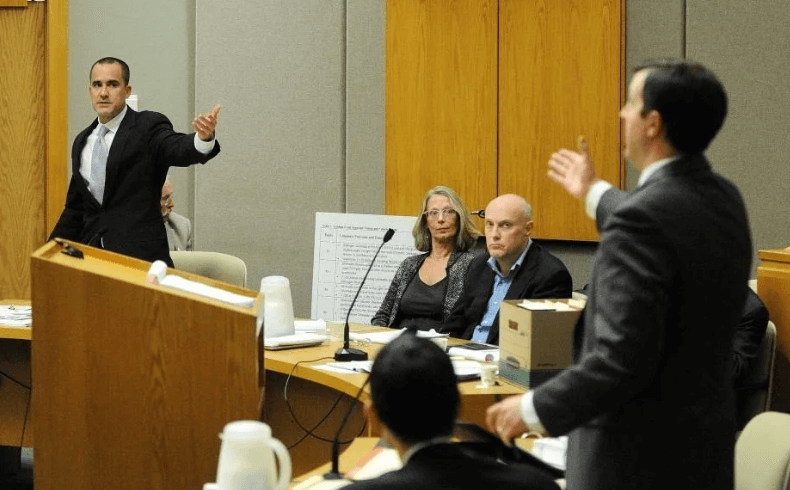Nevada Polygraph Testing: How Lie Detector Tests Work and What to Expect

Polygraph tests, more commonly known as lie detector tests, have long been a subject of fascination, skepticism, and debate. In Nevada, a state that balances unique cultural dynamics, strict law enforcement needs, and complex legal processes, polygraph examinations are used in multiple contexts. From criminal investigations to employment screenings and personal disputes, the role of polygraph testing is far-reaching.
For anyone asked to undergo a polygraph test in Nevada, the experience can feel intimidating, especially given the myths surrounding how they work and whether they are truly accurate. This article provides a detailed look at polygraph testing in Nevada, explaining how these tests function, when they are used, the laws that regulate them, and what individuals can expect before, during, and after the exam.
What Is a Polygraph Test?
A polygraph test, commonly called a lie detector test, is a procedure designed to measure and record several physiological responses in the body as a person answers questions. The premise is simple: when a person lies, their body may react in ways that can be detected by sensitive instruments.
A standard polygraph test monitors:
- Blood pressure and heart rate – Physical stress can elevate cardiovascular activity.
- Respiration – Breathing patterns often change under pressure or anxiety.
- Skin conductivity – Increased sweating affects the electrical conductivity of the skin.
These responses are charted as the subject answers both neutral and relevant questions. The examiner interprets the data to assess whether the subject’s physiological responses are consistent with truth-telling or deception.
The Use of Polygraph Tests in Nevada
Polygraph tests in Nevada are used in multiple settings, often depending on the stakes involved. Their use extends beyond law enforcement into employment and personal matters, although the weight given to results varies.
- Employment Screening – Certain industries in Nevada, especially law enforcement, corrections, and high-security fields, require polygraph testing as part of the hiring process. Applicants are asked about past conduct, criminal history, and drug use.
- Probation and Parole – Some offenders, particularly those under supervision for sensitive crimes, may be subject to polygraph tests to ensure compliance with probation or parole terms.
- Private Disputes – Individuals in Nevada sometimes seek polygraph tests voluntarily to resolve conflicts, whether in business partnerships or personal relationships. While not legally binding, the results can carry persuasive value.
See also: Spider Hoodie & Spider Sweatpants: The Unexpected Australian Style Phenomenon of 2025
Are Polygraph Results Admissible in Nevada Courts?
A common question is whether polygraph results can be used as evidence in court. In Nevada, the general rule is that polygraph results are not admissible in most court cases due to questions about reliability. Courts tend to view polygraph results as too subjective to serve as definitive proof of truthfulness or deception.
That said, there are exceptions. If both the prosecution and defense agree to submit polygraph results, a judge may allow them into evidence. This scenario is rare but possible. In family court or civil disputes, judges may consider polygraph tests as part of the overall evidence, though they rarely rely on them exclusively.
The Science and Accuracy of Polygraph Tests
Advocates of polygraph testing argue that, when administered correctly, polygraphs are between 80% and 90% accurate. They point out that the test is most effective when used as an investigative tool rather than as final proof of guilt or innocence.
However, critics caution that polygraph tests are far from perfect. Physiological responses are not uniquely linked to lying—stress, nervousness, fatigue, or medical conditions can produce similar reactions. A person telling the truth may appear deceptive if anxious, while a practiced liar might remain calm enough to pass.
This is why Nevada, like many other states, restricts polygraph results in courtrooms but allows them as part of investigative processes.
What to Expect During a Polygraph Test in Nevada
For individuals undergoing a polygraph test in Nevada, understanding the process helps reduce anxiety. A typical session includes three stages:
- Pre-Test Interview – The examiner explains the procedure, reviews the questions, and ensures the subject understands what will happen. This stage helps establish baseline readings.
- Testing Phase – The subject is connected to the polygraph machine, which records physiological responses as questions are asked. Both control and relevant questions are used to distinguish truthful answers from deceptive ones.
- Post-Test Analysis – The examiner reviews the charts and interprets the results. In some cases, subjects are asked to clarify answers or repeat parts of the test.
The entire process usually lasts between 1.5 and 3 hours, depending on the complexity of the questions.
Cost of Polygraph Tests in Nevada
The cost of polygraph testing in Nevada varies depending on the provider and the purpose of the test. Private polygraph examinations typically range from $200 to $600, though more specialized tests may cost upwards of $1,000.
For government-required tests, such as those related to law enforcement or probation, costs are usually covered by the agency. For personal or private disputes, individuals generally pay out of pocket.
When selecting a provider, it is crucial to choose a licensed, certified examiner with a reputation for professionalism and ethical standards.
Benefits of Polygraph Tests
Like any tool, polygraph testing has advantages and disadvantages that affect its role in Nevada.
Benefits:
- Useful for narrowing suspects in investigations.
- Acts as a deterrent in sensitive employment contexts.
- Provides reassurance or clarity in private disputes.
The Future of Lie Detector Tests in Nevada
While traditional polygraph testing remains widely used in Nevada, advancements in technology are reshaping the field of deception detection. Emerging tools such as voice stress analysis, brain-based imaging, and AI-driven behavioral analysis are being researched as potential alternatives or supplements to polygraphs.
Nevada, known for balancing tradition with innovation, may eventually see these technologies applied in both law enforcement and private sectors. Still, ethical debates about privacy and fairness will continue to shape the future of lie detection in the state.
Nevada Location
- Las Vegas – 1980 Festival Plaza Drive, Las Vegas, NV 89135
- Las Vegas – 9205 West Russell Road, Las Vegas, NV 89148
- Las Vegas – 71 South Las Vegas Boulevard, Las Vegas, NV 89119
- Las Vegas – 2300 West Sahara Avenue, Las Vegas, NV 89102
- Las Vegas – 101 Convention Center Drive, Las Vegas, NV 89109
Conclusion
Polygraph tests in Nevada serve as a complex but valuable tool in law enforcement, employment, and even personal settings. While they cannot guarantee perfect accuracy and are not admissible in most courts, they remain influential in investigative processes and background screenings.
For individuals facing a lie detector test in Nevada, understanding how the process works, what to expect, and the limitations of polygraph technology is essential. Ultimately, polygraphs represent one of many tools available in the pursuit of truth—a tool that must be used with caution, fairness, and awareness of its strengths and flaws.






